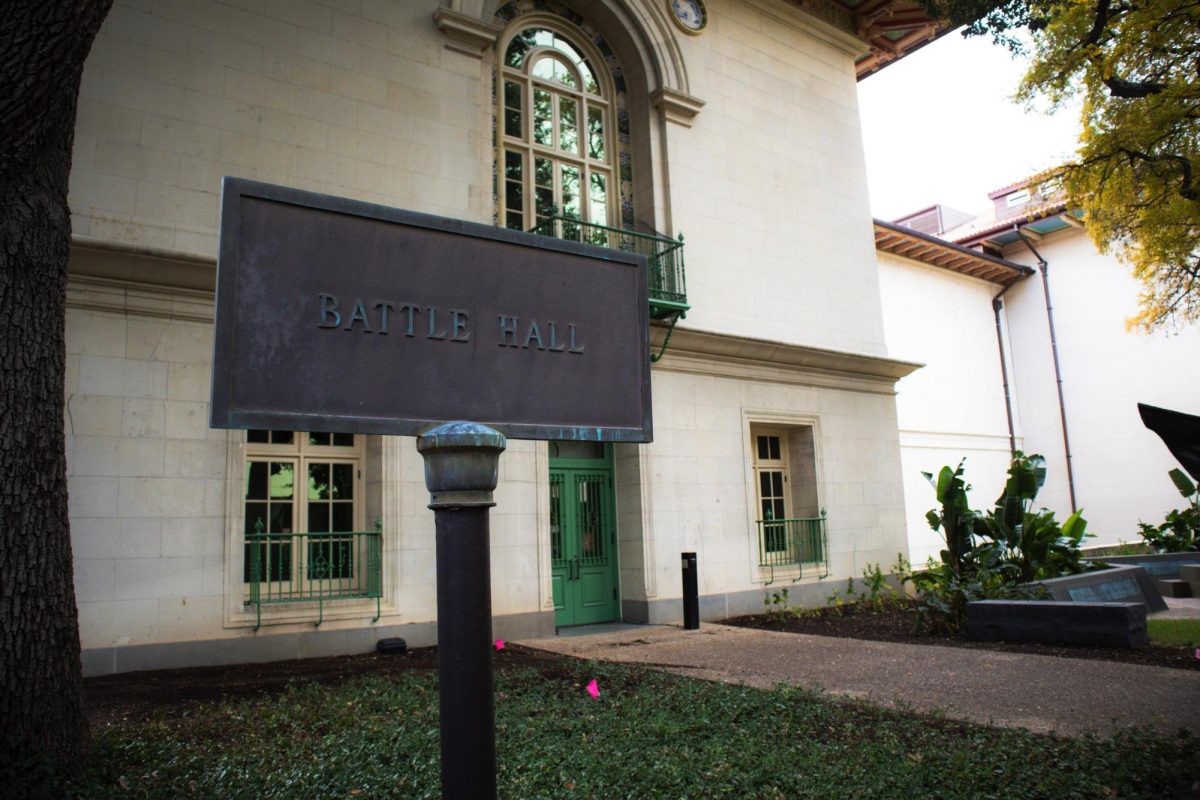During the last few weeks of the highly anticipated executive alliance election, Student Government has been a major topic of discussion at UT. If you have ever wondered what exactly SG is and what it does, The Daily Texan has you covered.
Since 1902, SG has served as the official voice of the student body. It has an executive, legislative and judicial branch and is governed by a constitution and detailed set of rules.
“SG advocates for the needs of students in all areas,” SG President Alejandrina Guzman said. “Whether that’s meeting with administrators, with students, at the Texas Legislature or in Washington.”
The SG Constitution details the responsibilities and requirements of each position. The Code of Rules and Procedures and Election Code provide more detailed descriptions of expectations. All documents are on the Dean of Students website.
The Executive Branch includes the president and vice president, elected by the student body, and an executive board appointed by the president and VP.
The president and VP serve a one-year term from April to April. Due to the demands of the positions, the president and VP may only take six hours of coursework per semester, unless they petition for more. Both are eligible to receive an annual stipend of up to $6,840 and a payment of tuition and fees of up to $5,200, according to the Code of Rules and Procedures.
Guzman encouraged students to get involved with SG by getting elected into the Assembly and voicing their opinion to SG representatives.
The Assembly consists of student representatives from each college, first-year, transfer, graduate students and students who represent the entire University. It passes legislation, holds meetings open to the University and allows students to speak during the open forum section of each meeting.
“Any student can write legislation and SG can help you,” said Madison Huerta, speaker of the Assembly. “After legislation is introduced at a meeting, it goes through a committee and, if it receives a majority vote, (it) goes back to the Assembly to be voted on. It can also be debated.”
Huerta, a management senior, said all legislation must be signed by the speaker and the president.
SG has 18 agencies focusing on specific policy areas, such as diversity and inclusion, federal and states relations, campus safety and more.
The Judicial Branch, or the SG Supreme Court, has student justices and meets whenever hearings are necessary. With a majority vote from the Assembly, the Supreme Court has authority to nullify any SG act
violating the Constitution.
Lastly, the Election Supervisory Board, which consists of students selected through an application and interview process, conducts student elections.
Reflecting on backlash SG and the ESB received during the recent election, Guzman said she understands student frustration with SG, but hopes students realize the power of SG and see the bigger picture.
Micky Wolf, SG vice president, said SG makes a strong effort to listen to students and work toward solutions.
“The conversations that began at the Texan about mental health costs were conversations we then reiterated in meetings with (UT) President (Gregory) Fenves and we were able to create change,” said Wolf, a Plan II and business honors senior. “Whether students realize it or not, the people who represent them in SG really can affect their college experience.”




















